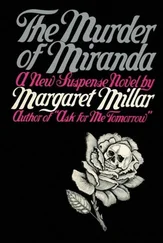“Neither new nor old. Average-looking.”
“Color?”
“Greenish.”
“Coupé Convertible? Sedan?”
“I can’t recall.”
“You said that the dog didn’t seem anxious to enter the car. That means you stood and watched. How did the dog get into the car?”
“Kellogg opened the door, naturally.”
“Which door?”
“The rear.”
“That would make the car a four-door sedan, wouldn’t it?”
“Why yes,” Sidalia said, looking pleasantly surprised. “Yes, I believe it would.”
“How did the woman react to the dog? Did she make a fuss over him? Did she reach back and pet him?”
“No. I don’t think she did anything.”
“Assuming that the woman was Mrs. Kellogg, would you call that normal behavior under the circumstances?”
“Dear me, no! When one of my little patients is released, there’s always a good deal of excitement on the part of the family. It’s one of the joys of my life, to witness these reunions.”
“How was the woman dressed?”
“I only saw her head. She wore a bright red scarf tied under her chin.”
“What color was her hair?”
“I can’t recall that any of it was showing. She was very tanned, I know that. I remember wondering how Mrs. Kellogg could have managed a tan like that with all the fog we’ve had this summer. Of course, we’re fairly sure now that the woman wasn’t Mrs. Kellogg, so perhaps she was not tanned at all but had a naturally dark skin. These days it’s hard to tell the difference, the way women bake themselves like potatoes.”
Dodd thought, a tanned or dark-skinned woman, a greenish sedan, a black dog; that’s not much to go on. “When Kellogg left, in what direction did he turn?”
“I have no idea. I went back inside as soon as he started the car. As I told you, I had a patient on the table at the time, the little Yorkie with distemper. A cruel disease, distemper, inflicted on the poor beasts usually by the carelessness of their masters. Would you care for a pamphlet on the subject of distemper immunization?”
“I don’t own a dog.”
“Cats also can become victims.”
“I don’t own a cat, either.”
“Dear me, you must be a lonely man,” Sidalia said with sympathy.
“I get along.”
“As a matter of interest, I have two little chaps in here right now who are looking for a good home, a beautiful pair of pedigreed cocker spaniels, brothers.”
“I’m afraid I...”
“You have a kind face, Mr. Dodd. I noticed, as soon as I opened the door, that you have a very kind face. I’ll wager you have a way with animals.”
“I live in an apartment,” Dodd lied. “My landlord won’t allow dogs.”
“He must be an unfeeling man. I’d move out of there immediately if I were you.”
“I’ll think about it.”
“Mark my words, a man prejudiced against animals is a man not to be trusted.”
Dodd opened the door. “Thanks for the advice. And the information.”
“Must you go so soon? My wife will be very disappointed at missing the chance to meet a real private detective. I’ll buzz her, it won’t take a minute.”
“Some other time.”
“Duty calls, I presume. Well, I hope I’ve been of some assistance. Not that I would like to get Mr. Kellogg in any trouble, he’s a fine, dog-loving man.”
“Whatever trouble he’s in, he got there himself.”
“Such is the way of the world,” Sidalia said with more pity than censure. “Good-bye for now, then. And don’t forget, when you move to a new place, there’s no better company in the world than a pair of cocker spaniels.”
“I won’t forget.”
Dodd realized as he got into his car that if he’d spent ten more minutes with Sidalia the back seat would now contain two cocker spaniels, and a lot of trouble. And a lot of fun. I wonder what Doris would say if I... No, that’s crazy. One dog, maybe. But two, she’d think I’d lost my marbles. Still, not everybody is offered a pair of beautiful pedigreed cocker spaniels. By God, I bet they’re cute...
The doctor was standing on the lighted porch, waving good-bye. Dodd pressed down hard on the accelerator and the little car jumped across the driveway as if all of Sidalia’s chaps were biting at its heels.
He took Portola Drive back to the city. He wasn’t in any hurry. An hour ago he’d been overoptimistic about finding out what car Kellogg was driving, the make, the year, even the license plates; he had imagined himself following Kellogg, reaching him before the police did, breaking the case before they even knew there was a case.
“Dodd, boy dreamer,” he said aloud. “Me and my kind face.”
He was aware that the police would be waiting for him at Kellogg’s house and taking a dim view of his absence, but a few more minutes wouldn’t make much difference. The telephone call he intended to make had to be made in private, without Brandon or any policemen listening in.
He parked the car in front of the building where his office was located, and took the elevator up to the third floor. Lorraine, his secretary, had left a message for him in her typewriter, as she usually did when something important came up during his absence: “Spec. Del. letter from Fowler on your desk.” To make sure he didn’t miss the letter she had propped it between two ash trays, as if she mistrusted either his eyesight or his ability to find anything.
Dear Dodd:
Had just returned from posting my previous letter to you when Emilio called me from the Windsor bar to tell me that something milagroso had happened to him. I don’t agree that it’s miraculous, but it’s interesting. Someone sent him two ten-dollar bills in an envelope postmarked San Francisco. He thought at first the money came from some lady tourist who’d taken a fancy to him. Then he remembered that O’Donnell had borrowed two hundred fifty pesos from him several months ago, roughly twenty bucks. I draw several conclusions from this:
O’Donnell is in S.F.
He has some means of support.
His conscience is bothering him, and he’s scared. (In my experience “conscience money” usually has little to do with the debt or theft involved. It’s a pay-off for other things, triggered by fear.)
Whatever is on his mind, it’s serious enough to make him send the money anonymously, but not so serious as to make him cover his tracks completely.
These are my conclusions. Draw your own. And happy hunting!
Fowler.
Happy hunting. Dodd repeated the words grimly, remembering the dead man on the kitchen floor. There were many mistakes in Fowler’s letter: all the tenses were wrong. The hunt was over.
He picked up the phone and called a number in Atherton.
A woman answered on the second ring. “This is the Brandon residence.”
“I’d like to speak to Mrs. Brandon, please.”
“Mrs. Brandon has retired for the night.”
“It’s very important.”
“She’s got a headache. I have orders not to dis—”
“Is that Miss Lundquist?”
“Why yes.”
Dodd oiled up his voice. “I’m a friend of Mr. Brandon’s. He’s often spoken of you, Miss Lundquist.”
“He has? Well, my goodness.”
“My name is Dodd. I must talk to Mrs. Brandon. Tell her that, will you?”
“I guess, being as it’s so important, she won’t mind. Hold on.”
Dodd held on, cradling the phone between his shoulder and his ear while he lit a cigarette. He could hear nothing from the other end, no whispers or sounds of movement. He thought the line was dead. Minutes passed, and he was on the point of hanging up when Helene Brandon spoke suddenly and sharply in his ear: “Hello, who is this?”
“Elmer Dodd.”
“We’re not acquainted.”
Читать дальше
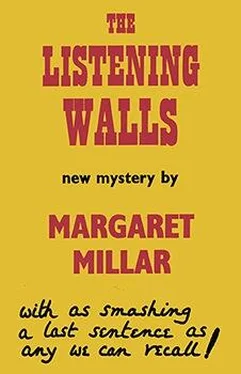

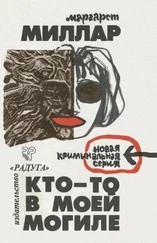
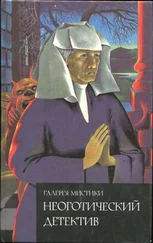
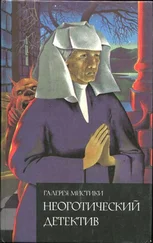

![Маргарет Миллар - Rose's Last Summer [= The Lively Corpse]](/books/384369/margaret-millar-rose-s-last-summer-the-lively-c-thumb.webp)
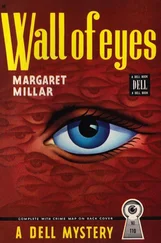
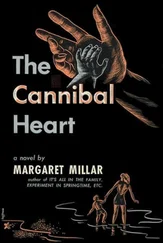

![Маргарет Миллар - The Iron Gates [= Taste of Fears]](/books/433837/margaret-millar-the-iron-gates-taste-of-fears-thumb.webp)
